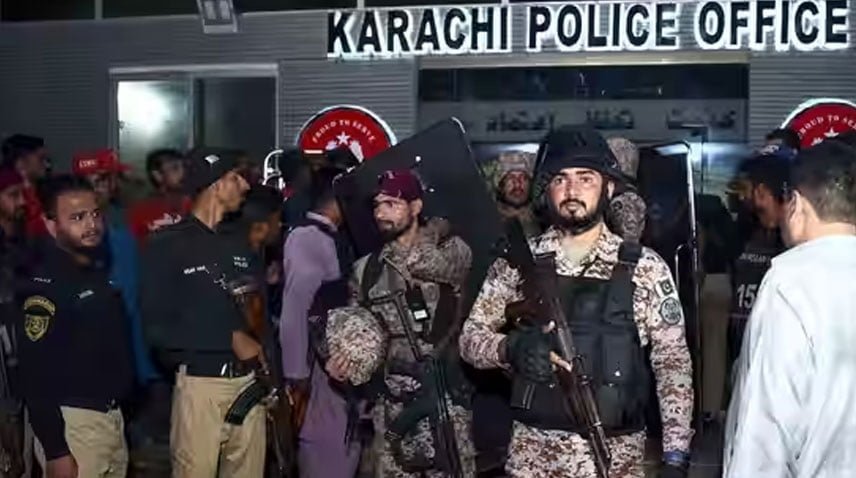EDITORIAL:
Monday’s daring assault by the banned TTP on the Karachi Police Office served as a brutal wake-up call for the nation. It highlighted the alarming vulnerability of our cities to terrorist threats, despite being fortified with security measures. The raid has underscored the urgent need to carry out an evaluation to detect security and intelligence breaches that allowed the incident to take place. Equally significant is the requirement for the civilian and military leadership to collaborate and develop a viable counter-terrorism policy. This should be a consensus reached through a collective effort from warring political parties.
Tragically, while the militants remain steadfast in their bloodthirsty agenda, the state is fumbling with an effective strategy to thwart their attacks. The circumstances that led to the assault were not sudden or recent. Those responsible for allowing militants to infiltrate Pakistan must account for their actions, whether they belong to the former PTI government or the previous military leadership.
Currently, PTI leaders are blaming former COAS Qamar Bajwa for enabling TTP fighters and their families to return to Pakistan during the unsuccessful peace negotiations with the terrorist group. Although the previous military leadership allowed TTP cadres to come back, former Prime Minister Imran Khan also endorsed this catastrophic policy, stating that the options were either to “kill them all” or to reach an agreement and allow the militants to settle in KP.
We are now reaping the consequences of permitting a large number of militants to return to Pakistan. Moreover, there is already an existing support network for militants in Karachi or any other significant city in the country. It is in the form of “jihadi” and sectarian actors who sympathize with the TTP’s cause. These elements provide sanctuary and support to their ideological comrades, allowing them to disappear into the urban sprawl. Hence, any counter-terrorism policy must also address these militant facilitation networks that already exist in Pakistan.
Following the brazen attack on the Karachi Police Office by the banned TTP, security experts are calling for a thorough security audit. While it is important to identify the weaknesses that led to the incident, the bigger issue at hand is the need for strong leadership to send a firm message to the terrorists that their murderous agenda will not be tolerated.
Regrettably, our civilian leadership is too preoccupied with trading insults, while the military has failed to assure the public that it will eliminate the terrorist threat. The much-hyped multiparty conference on terrorism has been postponed twice, highlighting the lack of priority that our ruling elite places on public safety. This negligence must come to an end.
The Sindh police officers, with the support of Rangers and military personnel, bravely put an end to Friday’s siege. The state must do its part and reassure our front-line security personnel and the population that it recognizes the severity of the threat and is taking all necessary measures to neutralize it.
It is important to note that the situation leading up to the attack did not develop overnight. Those responsible for allowing the militants to return to Pakistan, whether it be members of the former PTI government or the previous military leadership, must be held accountable for their actions.
Presently, PTI leaders are blaming former COAS Qamar Bajwa for allowing TTP fighters and their families back into Pakistan during the failed peace talks with the terrorist group. While the previous military leadership did permit the return of TTP cadres, former Prime Minister Imran Khan also defended this disastrous policy, claiming that the choice was between killing “all of them” or reaching an agreement and letting the militants settle in KP.
Moving forward, it is critical for the civilian and military leadership to collaborate and devise a viable counter terrorism policy. Political parties must work together to establish a consensus. While the militants are resolute in their bloodthirsty agenda, the state has been struggling to formulate an effective counter-strategy.
In conclusion, a security audit is necessary, but strong leadership and swift action are paramount. The state must prioritize public safety and take all necessary measures to neutralize the terrorist threat. The time for apathy and political bickering is over. The Pakistani people deserve better.
Read more:
















